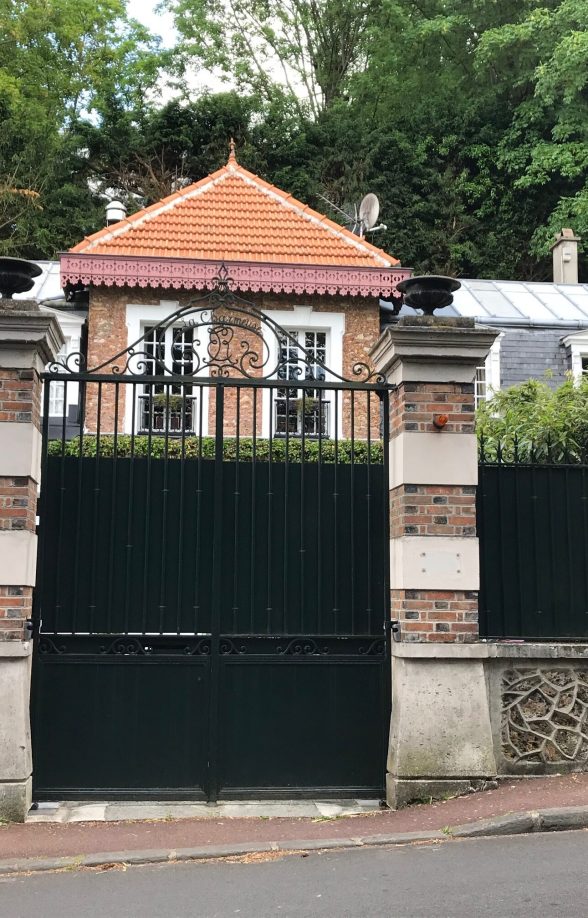The House of Emile Richebourg, famous series writer at the end of the 19th century.
Emile RICHEBOURG (1833-1898) lived at 7 route de La Celle St Cloud in a property to which he had given the name of "La Charmeuse", because it was the success of his novel "Andréa la Charmeuse", which had enabled him, in 1880, to acquire this property.
Émile Richebourg was one of the most profitable and popular writers of the end of the 19th century : The author par excellence of soap operas.
We wanted to honour popular literature in him. Particular sign: he is a fireman's lieutenant in Bougival", said a journalist rather nastily in 1894.
In 1876, the publication of L'Enfant du faubourg, a dark story of a noble child taken in by people of little means, was more than a success: it was a triumph. He then became the darling of the public, and from that day on provided the Petit Journal, but also the Petite République française, La Liberté, and many others, with millions of readers. He became rich, one of the three or four millionaires of the maudlin genre, abandoning all other work.
His life is writing in his house in Bougival. A journalist reported on his method: several tables in his study, a novel on each, and him moving from one pile to another without ever getting the plots wrong or deviating from his various narrative threads. He was made an Officer of the Academy on 18 April 1876, and was elected several times to the Société des Gens de Lettres.
He made one of his rare trips in 1897, to Italy. He died shortly afterwards in his house in Bougival, on 26 January 1898, while completing a new title for the Petit Parisien (Source Gallica BNF)
He is the donor of the stained glass window in the Church of Notre-Dame de Bougival, "Bay of the Lamb".
Below the lower medallion one can read "DON, EMILE RICHEBOVRG".
Émile Richebourg was one of the most profitable and popular writers of the end of the 19th century : The author par excellence of soap operas.
We wanted to honour popular literature in him. Particular sign: he is a fireman's lieutenant in Bougival", said a journalist rather nastily in 1894.
In 1876, the publication of L'Enfant du faubourg, a dark story of a noble child taken in by people of little means, was more than a success: it was a triumph. He then became the darling of the public, and from that day on provided the Petit Journal, but also the Petite République française, La Liberté, and many others, with millions of readers. He became rich, one of the three or four millionaires of the maudlin genre, abandoning all other work.
His life is writing in his house in Bougival. A journalist reported on his method: several tables in his study, a novel on each, and him moving from one pile to another without ever getting the plots wrong or deviating from his various narrative threads. He was made an Officer of the Academy on 18 April 1876, and was elected several times to the Société des Gens de Lettres.
He made one of his rare trips in 1897, to Italy. He died shortly afterwards in his house in Bougival, on 26 January 1898, while completing a new title for the Petit Parisien (Source Gallica BNF)
He is the donor of the stained glass window in the Church of Notre-Dame de Bougival, "Bay of the Lamb".
Below the lower medallion one can read "DON, EMILE RICHEBOVRG".
